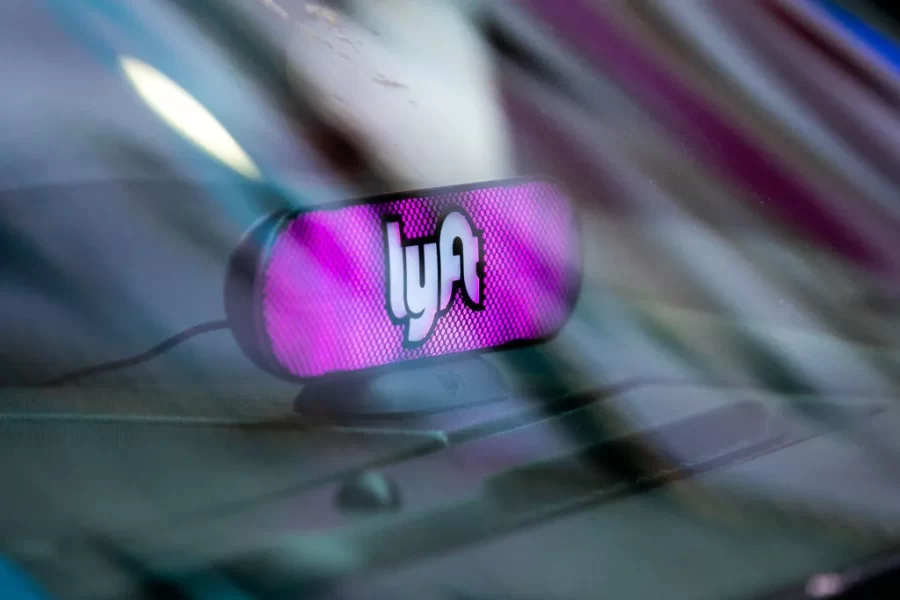How Safe is Lyft?
Just how safe is it to pay a stranger to drive you home? Companies that provide transportation services, Lyft and Uber, have gained popularity over the years, but it was not always the kind of popularity that most companies aim for. There have now been seventeen lawsuits filed against Lyft, from both drivers and passengers.
Lyft might not always be your safest option, and though it might seem like a good idea at first, sometimes being a passenger in a stranger’s car can perhaps lead to a dangerous situation.
Some of the seventeen passengers and drivers in question have decided to share their stories and struggles with the world. Katherine Rasta, one of the seventeen victims, claimed that she was sexually assaulted by a Lyft driver in 2021. Another victim from Chicago, Stella Grant, was a Lyft driver in the same year, and mentioned: “[I] was physically assaulted by an intoxicated passenger in 2021.” In this situation, the passenger tried to take control of the car, causing it to crash. Just like Rasta, Grant, and many more victims, Amy Collins said, “I hope that sharing my story, and my trauma, will get Lyft to care about the people who use its platform”.
“Lyft is on the side of the perpetrators, not the victims,” said Adam Wolf, one of the attorneys representing the Lyft users. This statement came from the fact that Lyft has ignored and done nothing about the many reports of an assault. The attorneys are convinced the company does not care for the victims and has not made any changes to improve the safety of their passengers and employees. On the other hand, one of the Lyft spokespeople described that the attorneys allegedly made misleading statements regarding the company’s safety insurance.
The company released the reports of an assault that they received from 2017-2019. There were over 4,000 reports of sexual assault, and as the years went by, the number of reports of sexual assault kept increasing. A spokesperson for the company claimed in a KQED article that Lyft has yearly background checks on their drivers and that “over 99% of rides occur without a safety report.” Clearly, the company is doing everything in its power to keep its image and a good reputation. Wolf said to TPR, “Rather than protecting victims attacked in Lyft vehicles, Lyft vaguely attacks sexual survivor advocates. More important is what Lyft didn’t say: that it is sorry that passengers and drivers were sexually assaulted and beaten using Lyft’s services,” the attorney made it clear he believed that Lyft doesn’t care about their passengers and drivers and is more focused on their own profit and having a successful company than the safety of who there profiting off.
In 2019 there were around 1,807 sexual assault reports on the app, according to the Guardian.
These mainly were categorized as “non-consensual touching of a sexual body part”. Note that this is not the first time Lyft has dealt with a lawsuit. Five years ago, (in 2017), Alison Turkos, who lived in New York, sued Lyft for failing to guarantee her safety. Turkos has been actively posting on Twitter and was brave enough to share her story. In 2019, she said, “ I was kidnapped at gunpoint, brought across state lines, and repeatedly raped by my Lyft driver and at least 2 other men.” Turkos mentioned that Lyft had ignored her effort to get justice. She is determined to get the justice she and the other victims deserve and will not stop until Lyft shareholders stop “profiting off survivor’s harm, off our rapes, our kidnapping, [and] our trauma.”
After all these years, Lyft has been exposed and should feel obligated to fix its safety policies for both its passengers and drivers before it goes bankrupt from all the controversy. However, as Lyft continues to hide and not listen to the victims, the more they want justice. Turkos has mentioned that this process is tiring and it feels as if the company is profiting off of her trauma. Still, she will not back down until she has the chance to personally ask Lyft, “Is this what you want your legacy to be?”







Katherine rasta • Oct 17, 2022 at 9:32 pm
I am the victim mentioned in this article, after being sexually assaulted by my Lyft driver. Lyft made me feel worthless and made me feel like I didn’t matter. They were not concerned of my well being, they are more concerned with protecting themselves I hope sharing my story encourages Lyft to put dash cams in every vehicle who is operating under Lyfts platform. Lastly I want to thank Peiffer Wolf for giving me my voice back.